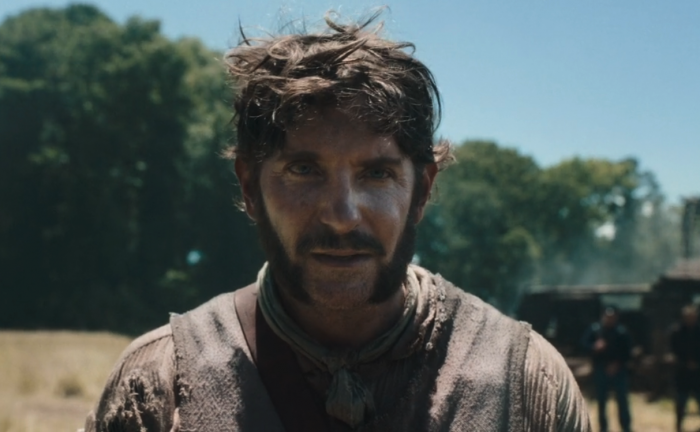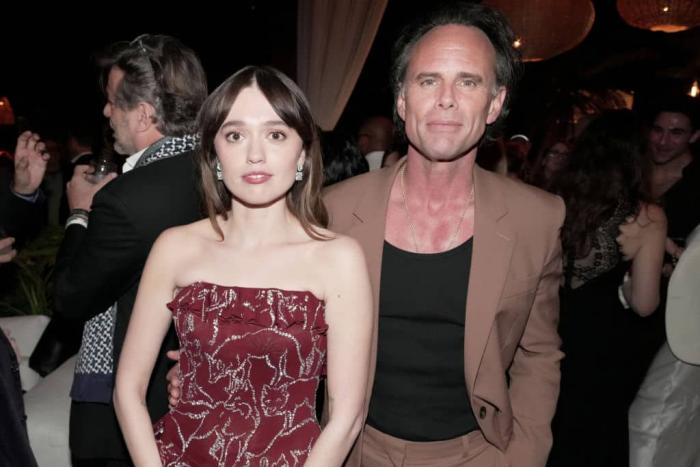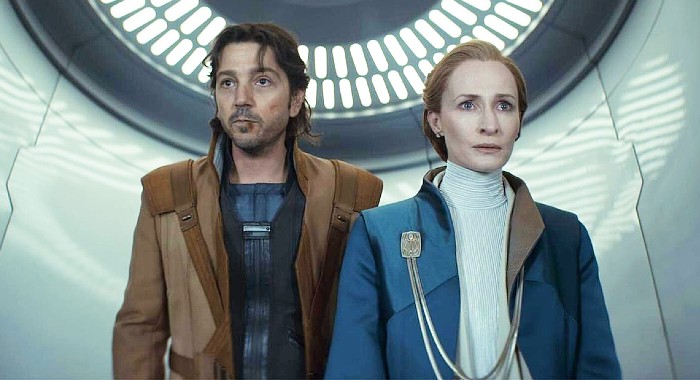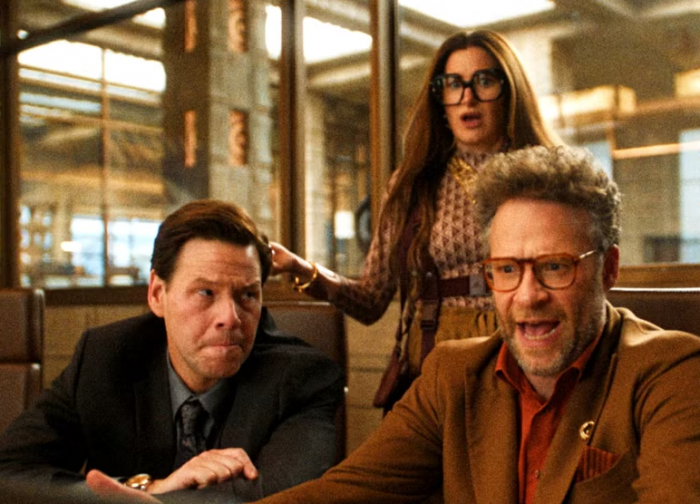
On Prime: ‘Sound of Metal’ is Unlike Any Other Movie You’ve Ever Seen or Heard
By Roxana Hadadi | Film | December 4, 2020
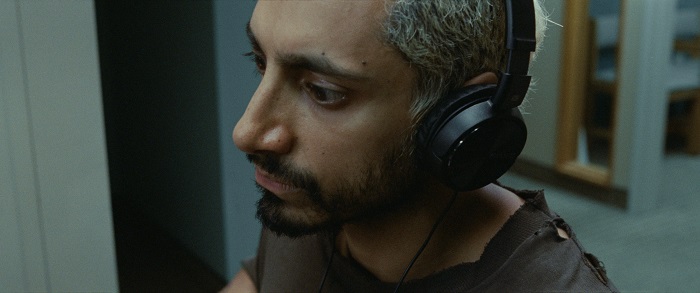
The English language sometimes seems incapable of capturing the weight of the most cataclysmic ebbs and flows of our lives. The words “change” and “loss” don’t look like much, and yet they’re meant to describe phenomenal alterations to our experiences, our perspectives, and ourselves. They’re not enough, and Sound of Metal knows this. Instead of settling for a depiction of transformation, Sound of Metal collapses the walls between us and its characters and forces us to hear what they hear (or don’t), and places us alongside individuals who are forced to accept (or don’t) that their former way of life is now utterly inaccessible. The result is an all-body experience that allows Sound of Metal to seep into your bones, with every nuanced, introspective choice from Riz Ahmed tearing a little chunk out of your heart.
Sound of Metal centers Ahmed as Ruben, one-half of the thrash-punk band Blackgammon alongside his girlfriend Lou (Olivia Cooke). He plays drums and she plays guitar, they live and travel together in a tiny Airstream, and they’re rarely ever apart. Their love is tinged with codependency brought about by trauma and pain—Ruben is a recovering heroin addict, Lou’s mother killed herself—but they’re each other’s person.
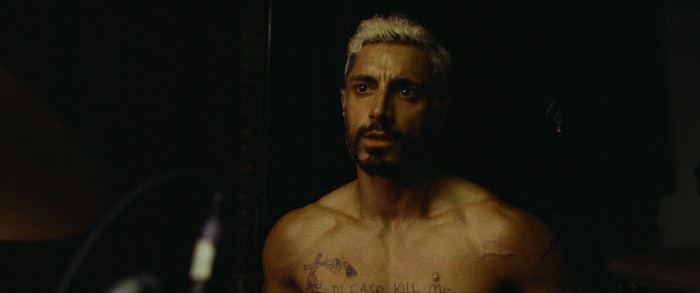
But remember that great line from Miller’s Crossing: “Nobody knows anybody. Not that well”? There are some places we can’t go together, some journeys that are rigidly and unalterably individual. So it goes for Ruben when one night on tour, while smashing the drums and gnashing his teeth, his lean body silhouetted in the strobing light (illuminating a tattoo with the text “Please kill me”), the sound inexplicably goes out. All of a sudden what he could previously hear—the screech of Lou’s singing voice, the yelling of the crowd—is gone, and what replaces it is a deep, impenetrable sort of fuzz. When Ruben visits the doctor and is told that he’s lost about 80% of his hearing and is now “quite impaired,” that development means the end of life as he knows it. And when Ruben ends up in a deaf community led by the empathetic but no-nonsense Joe (Paul Raci), with the directive to learn how to speak sign language and accept that this is his new reality, this is a place that only he can go.
What happens next challenges the idea that humans are adaptable. Ruben is a recovering heroin addict; will the shock from this change urge him to use again after four years sober? Who is Ruben without music, without Blackgammon, without Lou? The rhythms of addiction guide Ruben’s behavior forward—his desire for a quick fix, and the desperate methods he’ll use to get it—and make for a deeply compelling, profoundly empathetic portrait of male fragility and individual denial.
As a screenwriter, the lure of toxic masculinity is a familiar one for Marder, who co-wrote Derek Cianfrance’s 2012 film The Place Beyond the Pines. In an interview with Pajiba, Marder acknowledged the similarities between Ahmed’s Ruben and Ryan Gosling’s Luke, one of the main characters in that film. Both men are impacted by societal expectations about male strength and responsibility, caught between the chaos of self-hatred and the yearning to do better for the people we love, Marder explained, and “Those things become poisonous to us, and we poison ourselves.” For Ahmed’s Ruben, that manifests in moments that are achingly beautiful in their desire for human connection (“You’re it for me. You’re my fucking heart,” he says to Lou before they separate, a moment that occurred during filming, too, as Sound of Metal was shot chronologically and Cooke left the set at that point; Ruben drumming on a metal playground slide while one of the deaf children in his class feels the reverberations), but also believably frustrated and beleaguered (Ruben’s obsession with reclaiming his hearing, as if he can “get it back” and it’s not something that is degenerative and permanent).
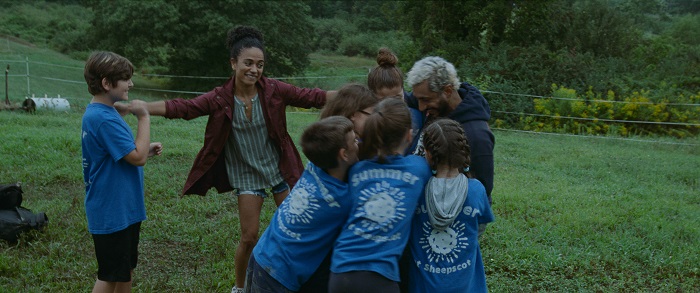
A performance like this could be highly reactive, could rely on outsized outbursts to hammer home the validity of what is happening to Ruben and to strong-arm our engagement, but the key to Ahmed’s work here is its silence. Think of Ahmed in HBO’s The Night Of, and in the power of his stare; he’s a performer who can pack countless unspoken words into one look. Aggression and loathing. Regret and guilt. Compassion and love. His Ruben Stone is a measure in tight rigor lest he lose control, and the performance is so captivating because Ahmed clues us into Ruben’s interior fracturing as he struggles to understand who he wants to be. Ahmed and Cooke have such an easy chemistry that you almost miss the danger of their codependency, and Cooke undergoes a transformation of her own later in the film that will make you wonder about what we do to survive. It’s a disappointment that Marder’s idea which he shared with Pajiba about shooting a companion film focused on the experiences of Cooke’s Lou, a la the three versions of The Disappearance of Eleanor Rigby, didn’t pan out.
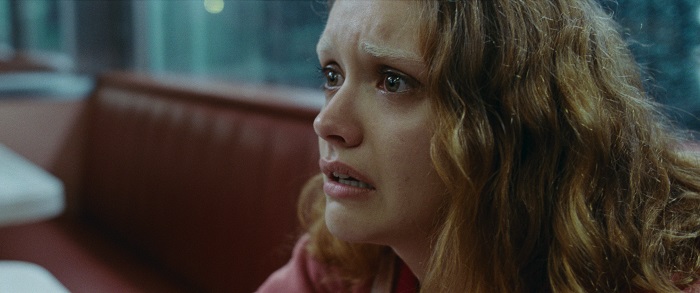
Ahmed’s work is centered in a film that is devoted to placing us in Ruben’s shoes, and to providing the deaf experience and community with the nuance they deserve. Ahmed wore specially designed earpieces during filming that blocked out his hearing with omnipresent white noise, and that lived experience comes through in his performance. The film’s sound mix took more than five months, and the result is an auditory atmosphere that never once lets us settle into complacency: the sound goes out, it becomes varyingly distorted, conversations seem like they’re occurring underwater. When the film spends time in the deaf community led by Joe, we become aware of a thriving culture that is built specifically for and by them; when Ruben acts in betrayal of that idea, we understand the depth of his disrespect. Everything in Sound of Metal is meticulously intentional (shot on 35-mm film; be still, my heart!), and everything operates together in service of a film unlike anything you’ve seen before.
“What is it gonna be?” Ruben asks someone during Sound of Metal, but the question is really about the drummer himself. How do our lives become something entirely different from what we anticipated, and who do we become as a result? What do we owe ourselves, and how do we fail ourselves? The challenges of those reckonings are the core of Sound of Metal, a film whose technical achievements mirror the quality of its emotional truths.
Sound of Metal, which was screened as part of the Toronto International Film Festival in 2019, is playing in limited theater release as of Nov. 20, 2020. It will be released for streaming on Amazon Prime Video on Dec. 4, 2020.
